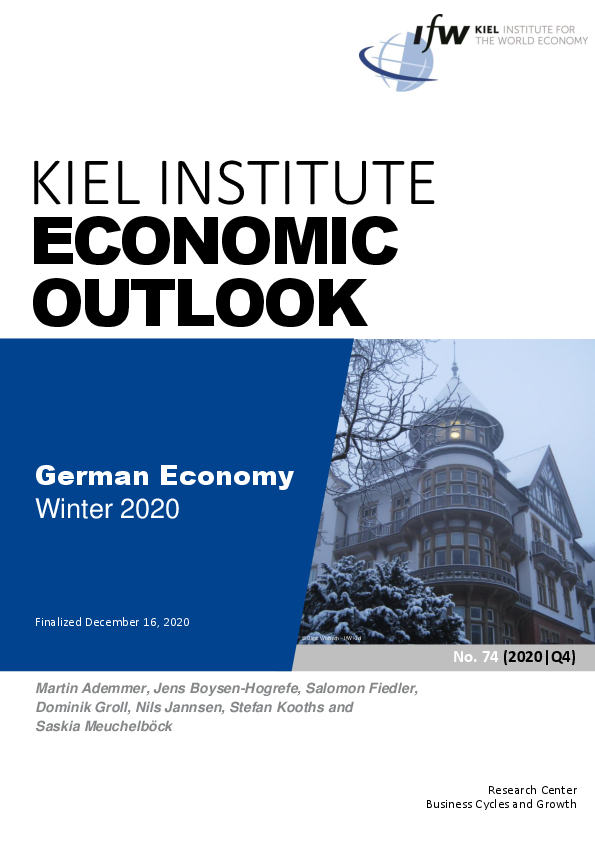Economic Outlook
Second Covid wave interrupts recovery
Authors
Publication Date
Key Words
Related Topics
Business Cycle
Business Cycle Germany
Fiscal Policy & National Budgets
Labor Market
The recovery of the German economy is interrupted. The main reasons are the second Covid wave and the shutdown measures that have been implemented since November. Since these measures will, at least to some extent, probably remain in place for some time to come, GDP will decline in the final quarter of this year and in the first quarter of next year. However, these declines will not reach the extent seen in spring and will be much more concentrated on specific, consumption-focused industries. Several of these industries have not yet fully recovered from the slump in spring, so that less economic activity will be lost there in the winter half-year. In addition, exports are likely to remain on an upward trend in view of the relatively robust global economy. Against this backdrop industry will probably come through the winter half-year without a slump in production. All in all, we now expect a lower GDP growth rate of 3.1 percent next year compared to our autumn forecast (4.8 per cent), after a decline of 5.2 per cent in the current year. If the pandemic can be suppressed sustainably from spring onwards, a strong recovery will take place in the course of the coming year and will lead to a strong increase in GDP of 4.5 percent in 2022 (autumn forecast: 2.4 percent). The labor market will show a similar pattern as GDP so that the recovery here will take place with some delay as well. As the temporary slowdown in the winter half-year will dampen governmental revenues and the shutdown will be accompanied by further aid payments, fiscal budget will be additionally burdened. We expect fiscal budget deficits of 4.9 per cent relative to GDP for the current year and 4.1 per cent for next year. In 2022, the deficit is expected to fall to 1.8 percent.









